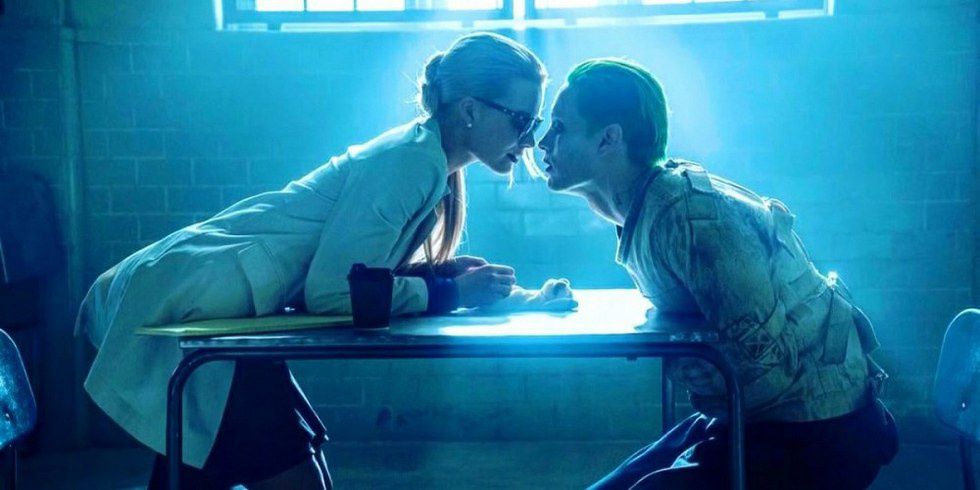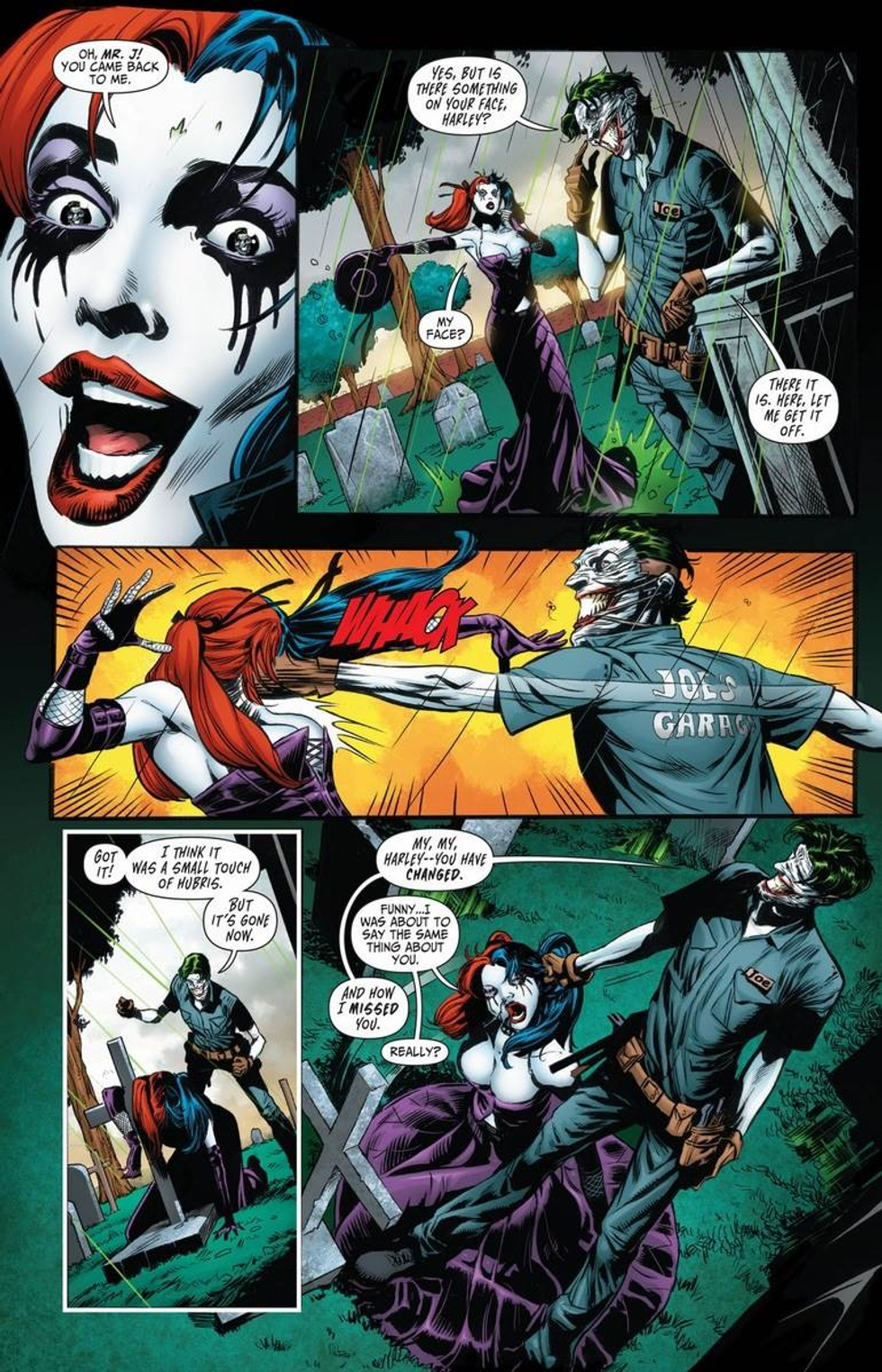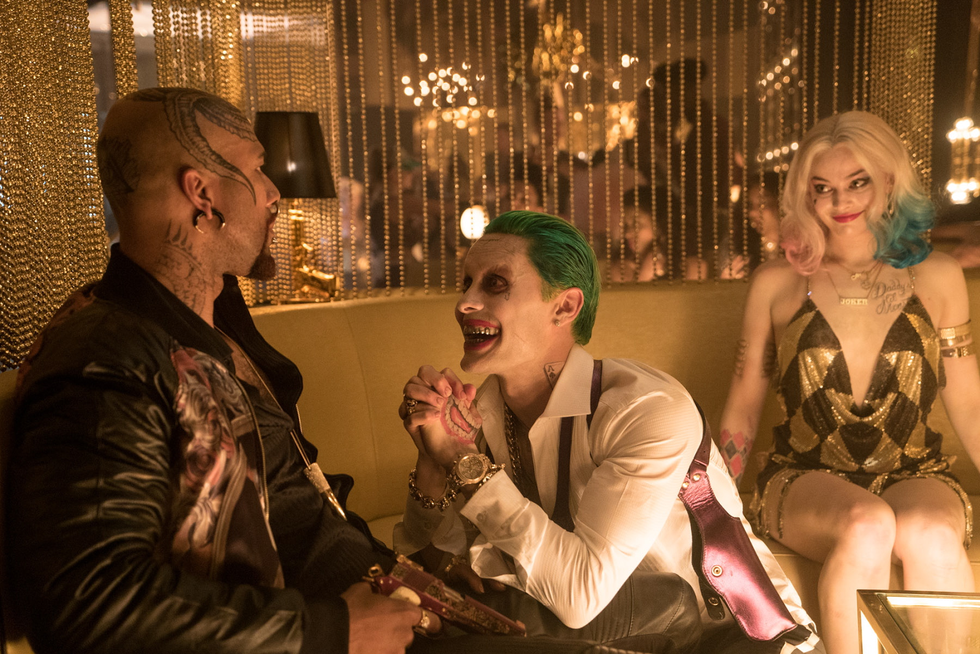Suicide Squad,” the latest installment in the DC Universe, has received its share of criticism since its release in early August. Its incriminations include a rushed production, a scattered and irregular plotline, and a choppy final cut with more than a handful of scenes removed from the finished product. Several lists of every deleted scene have been complied, to give audiences an idea of what the film was missing.
Many of these missing scenes feature the highly anticipated portrayal of The Joker by Jared Leto. In the final cut, the Joker was only present for a fraction of the film and mostly was on a quest to retake his girlfriend Harley Quinn, played by Margot Robbie. It is within these deleted scenes, and the scenes that did make the final cut, that tell the love story of these two psychopaths.
Fans of the comic book series were already well-versed in The Joker and Harley Quinn’s relationship prior to the film’s release. However, to a less-knowledgeable outsider looking in, the relationship that is portrayed in the film tells a different story. Although clearly not the healthiest of relationships, The Joker is much nicer to Harley than his character normally is; his main motivation throughout his short screen time is to rescue Harley. The movie paints the picture of a love reminiscent to Bonnie and Clyde, a “Mad ove,” in which there is an equal part of love and obsession from both parties. It is this love that has waves of fans swooning, and quickly labeling the couple as “Relationship Goals.”
This representation of the couple is completely inaccurate to their comic book counterparts. It is no secret that a majority of the original film was cut so that the relationship appeared more like love than abuse, but is entirely part of the problem. Within the deleted scenes, there is a sequence in which Harley and The Joker get into a fight that results in Harley putting a gun to The Joker’s head. He proceeds to sweet-talk her until she lowers the gun, and then slaps her across the face. Immediately following this, he sweet-talks her again, and the couple kisses. In one cut of the scene in which The Joker pushes Harley out of the helicopter to save her life, he apparently pushed her out to kill her and not save her life.
Changing the dynamic of Harley and The Joker’s relationship is not only an inaccurate way of depicting their characters, it presents a false glorification of a “romance” that is anything but romantic. The result is fans of the movie praising the couple’s relationship, while simultaneously promoting an extremely toxic situation.
But even the scenes that remained in the theatrical cut display a relationship that is anything but loving. Although The Joker’s main purpose in the film appears to be rescuing Harley from her imprisonment, it never quite feels like a man on the quest to save his love. From the way he talks about and looks at her, it is as if he views Harley as a piece of his property. The club scene near the beginning is a perfect showcase of this: from the way he beckons her with a whistle, to the way he “gifts” her to the thug, right down to the moment the thug says, “That’s your lady,” and he replies with a satisfied “That’s right.”
This possessiveness is anything but loving, but it is not the only example of The Joker’s lack of emotion towards his “Queen.” Shortly afterward, he leaves her in the submerged car by herself to be captured by Batman. Later, there is the scene in which he convinces her to throw herself into a vat of chemicals, but jumps in to save her at the last minute, seemingly out of “love.”
Relationship abuse and domestic violence are very real issues in modern society; one in three women are victims, and more than three women on average die each day from it. This is the reason why media portrayal and responses to these portrayals are crucial. When so many audience members appreciate and even praise these types of situations, films quickly move from entertainment pieces into controversial topics.
Abusive relationships in films have been a hot topic over the past few years, particularly with the Twilight and 50 Shades franchises. Since the characters made their appearance to the big screen in 2008, it has been proven many times over that Bella and Edward were in an abusive relationship. Likewise, there is much debate on whether 50 Shades is a consensual partnership or a damaging relationship.
However, the main difference between these relationships and the relationship in question is that--and this must be stressed--The Joker and Harley are villains.
Villains, by nature, are not meant to be moral or rational characters. The Joker himself has a long history of pointless murder, manipulation and a complete apathy for anybody’s well-being except his own. Although in the comic books, his relationship with Harley could be described as complex and possibly hinting at deeper emotion, there is still enough evidence to support his lack of genuine love. Harley and The Joker are clearly in a relationship that is abusive in every sense of the word, but that is exactly the point. Villains are portrayals of all that is wrong with the world, and they are not meant to be wholly understood. If a villainous relationship was portrayed as anything less than abusive, we would begin to question our own relationships--and maybe even ourselves. It would be wrong to fully condemn The Joker and Harley’s romance, because in doing so, we would simultaneously be condemning the entirety of their characters when heartless and evil is exactly what they are supposed to be.
Despite the critical reviews (and condemnations), Suicide Squad is, in its essence, pure fun. It is loaded with action, laugh-out-loud comedy and a talented cast. The Joker and Harley Quinn and are nothing more than everyone else in the film: fictional characters, whose primary purpose is to entertain. At the end of the day, they are not real people and their relationship is completely fictitious. After two hours of terrorizing Midway City, the credits will roll and we, the audience members, can go on our way, unaffected by movie villains.
So what is the consensus? Are films like Suicide Squad glorifying abusive relationships to the point where they are deemed almost acceptable? Should we take anything these characters do seriously, despite their enormity in pop culture because they are villains? Are they satirical or damaging to a generation that absorbs content like a sponge? Are we thinking about this too much when we should just be enjoying the film for its face value? Do fictional characters, even villains, really have that large of an effect on the world? Does any of it actually matter after the credits stop rolling?
That, ladies and gentlemen, is for you to decide.
















































